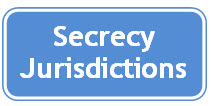 I have written a programme in five parts for tackling the abuse that offshore secrecy jurisdictions facilitate. It tackles the key issues of opacity, tax abuse, corruption, corporate unaccountability, transfer mispricing and more besides that these secrecy jurisdictions are intended to create or facilitate. That is both an allegation and a fact: nothing has so far changed in the world of offshore to make me change my mind on any such issue and no regulation yet created has had anything but token impact on the processes used to facilitate such abuses — not least because almost no regulation has yet looked at what happens on the ground in most of these places.
I have written a programme in five parts for tackling the abuse that offshore secrecy jurisdictions facilitate. It tackles the key issues of opacity, tax abuse, corruption, corporate unaccountability, transfer mispricing and more besides that these secrecy jurisdictions are intended to create or facilitate. That is both an allegation and a fact: nothing has so far changed in the world of offshore to make me change my mind on any such issue and no regulation yet created has had anything but token impact on the processes used to facilitate such abuses — not least because almost no regulation has yet looked at what happens on the ground in most of these places.
That is though why this programme did not start in the obvious place — focussing instead on what happens in the onshore world before giving any consideration to offshore. There is good reason for that, because we set the right example we cannot demand the same of others.
There is also good reason for one of the major asks being for the promotion of a changed philosophy of property rights. We have to view the needs of people as being more important than the interests of property if we are really to change the well being of the poorest people in this world —a the people whose suffering the offshore world is designed to exploit.
That these people suffer is, of course, partly circumstantial. But to far too great a degree it is also a matter of choice — and our choice at that. We can demand change and we can expect the way limited companies and trusts are managed to be transparent if that benefits us all. We can demand accountability. We can then expect that accountability to be exported, with the threat of sanctions attached if it is not. We can expect information exchange to be undertaken automatically when it is possible to do so to eliminate crime — and not just minor crime, but the biggest ongoing heist of all time. And we can expect a bias to the poor in the world’s tax system.
Is that too much to ask? I don’t think so. But you too can decide. And you have an obligation to do so.
Thanks for reading this post.
You can share this post on social media of your choice by clicking these icons:
You can subscribe to this blog's daily email here.
And if you would like to support this blog you can, here:



TED (Technology, Entertainment and Design) described as “Facebook for smart people” would be a great way to get this programme out to a wider audience. TED has been viewed online by 290 million people. TED is under te wing of Chris Anderson’s Sapling Foundation – a non-profit dedicated to tackling tough global issues. For more information check out the Sunday Times profile of Chris Anderson on 18/7/10